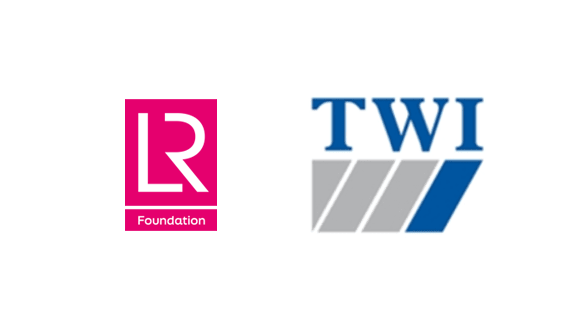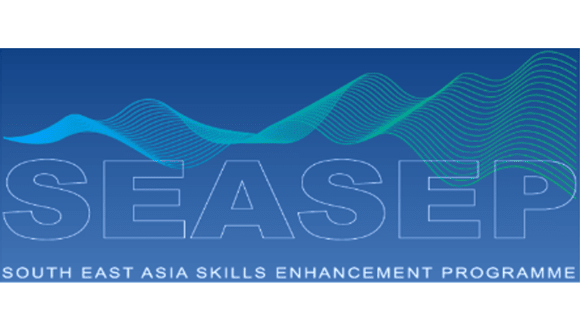Mon, 28 November, 2022
The South East Asia Skills Enhancement Programme (SEASEP) is entering a second phase to continue providing funded training to upskill people in South and East Asia.
SEASEP was launched by TWI and leading UK-based charity, the Lloyd’s Register Foundation (LRF) with a specific focus on improving health and safety standards in the South East Asia region.
The programme delivers funded skills development training leading to internationally recognised qualification and certification, ensuring that in-country skills shortages are addressed, while improving safety standards to reduce occupational accidents and fatalities and also providing access to disadvantaged or under-represented groups through the additional support offered with course fees.
Why is SEASEP needed?
There are an estimated 340 million workplace accidents around the world each year, both non-fatal and fatal, of which a disproportionately high number happen in the construction industries of South and East Asian countries. Workplace fatality rates are between ten and twenty times higher in some South East Asian countries than in Europe.
This situation was already in grave need of addressing before we consider the rapid expansion in SE Asian economies that is fuelling infrastructure project spending across the region, creating a boom in construction.
While this boom is helping to drive the regional recovery from the Covid-19 downturn, if health and safety improvements are not addressed, the increase in construction work will lead to a large scale increase in workplace accidents.
The International Labour Organisation (ILO) identified three direct causes of accidental workplace fatalities:
■ Poor or no safety culture
■ Lack of research into health and safety due to poor data available
■ Absence of effective health and safety training
The SEASEP initiative directly addresses these problems by providing skills enhancement, which is now strengthened by basic health and safety knowledge training, available to all participants, underpinning the need to be aware of hazards and safe working practices.
While important, SEASEP offers more than improved safety for workers in SE Asia, it is also helping to create an internationally competitive, skilled workforce.
Engineering personnel are the backbone of a nation’s development and it is important that young engineers are given the right skills so that they perform their work well and safely, while also improving their own job opportunities and future career prospects.
The combination of skills enhancement training and funding makes this achievable.
SEASEP Objectives
The SEASEP initiative has a number of overarching objectives including:
- Creating a safety-skilled workforce that is more accessible to industry
- Ensuring safer working practices leading to fewer accidents and less injury/death at work
- Improving the safety and integrity of critical infrastructure, while reducing failure
- Improving the job prospects and career progression for disadvantaged and under-represented groups
How does SEASEP work?
SEASEP is underpinned by the work of the Lloyds Register Foundation in supporting students, unemployed or employed people to attend training courses through offering a bursary support package that subsidises the cost of the training to both organisations and individuals.
The training is delivered by TWI, with an additional cost reduction offered, meaning there is already a substantial discount on any course fees for SEASEP trainees.
This funded training is available for individuals, members of government training institutes, universities or businesses, and we also offer special ‘train the trainer’ courses to help further disseminate the important outcomes of the programme.
The training is backed up by internationally recognised qualification and certification schemes including CSWIP, BGAS, Health and Safety and Environmental Management.
Trainees use an enrolment form to sign up to specific courses or can also enquire about other courses so that demand and delivery of the course can be assessed on a case-by-case basis.
Many of the courses on offer are also supported by additional study materials and distance learning offerings that are available online through TWI Training’s Virtual Academy.
SEASEP Phase One
Phase One of SEASEP has now concluded, having successfully delivered training to thousands of candidates in India and Indonesia.
This phase of the programme showed how we were able to use our connection to the region to provide the required course portfolio for The Lloyds Register Foundation. Combined with our unique control mechanisms for examination and certification through the well-established CSWIP certification body, which has over 50 years of international experience, we were able to jointly deliver certification that is often a requirement to gain employment within the inspection industry in South East Asia.
Originally planned to run from October 2018 to January 2021, Phase One was extended by a further year due to the Covid-19 pandemic. This phase trained more than 4,000 people to international standards in health and safety and critical inspection courses across India and Indonesia. Increasing participation in engineering among under-represented groups, there was a noticeably profound effect on female students in Indonesia through their engagement with SEASEP.
What is SEASEP Phase 2?
SEASEP Phase Two launched in October 2022 to both build upon and extend the successes of Phase One.
Increasing the objectives from Phase One, this new phase of the programme aims to offer the following training:
- An additional 1000 students trained in Indonesia (Funding £0.5m)
- An additional 1000 students trained in India (Funding £0.5m)
- 2000 students trained in the Philippines (Funding £1m)
- 2000 students trained in Thailand (Funding £1m)
With SEASEP now taking in two new territories, we look forward to seeing even more people benefit from the programme.
Once more, the programme will offer any courses within the TWI portfolio so long as they can be managed within the aims of the SEASEP framework and the bursary available to meet the minimum numbers required.
In addition, there will be a new provision for Phase Two that will further meet the critical requirement for improved health and safety. Any trainees that do not hold a standard health and safety certificate (minimum requirement is the ‘IOSH Working Safely’ certificate), will need to sit a short course (<1 day) and take an online examination, this will also include a short questionnaire as part of the enrolment process. This requirement will lay the foundation for being accepted onto other SEASEP inspection based courses.
In addition to the new health and safety baseline, other developments for Phase Two include the benchmarking of areas for improvement, ensuring that SEASEP continues to deliver on its objectives.
Phase Two is due to run as a three-year programme to continue delivering societal impacts including improved safety of physical assets, fewer people being harmed or killed in workplace accidents, delivering a higher proportion of female trainees and other underrepresented groups, and helping to grow infrastructure across South and East Asia.
You can find out more about SEASEP here.

